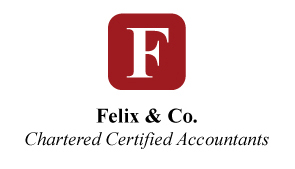In the dynamic world of UK property investment, understanding and adhering to HM Revenue & Customs (HMRC) regulations is crucial. HMRC compliance assistance isn’t just about ticking boxes—it’s about safeguarding your investments, avoiding hefty fines, and maintaining a reputable standing in the industry. This comprehensive guide will help landlords and property investors navigate the complex terrain of tax compliance for landlords, ensuring smooth sailing in your property ventures.

The Importance of HMRC Compliance
Imagine driving a car without understanding the rules of the road. Sooner or later, you’re bound to run into trouble. Similarly, without proper knowledge of property tax compliance UK, landlords and investors risk facing penalties, legal issues, and financial losses.
Why Compliance Matters
- Financial Security: Avoid unexpected fines and penalties.
- Legal Protection: Stay within the bounds of the law to protect your assets.
- Reputation Management: Maintain trust with tenants, investors, and financial institutions.
As Emily Thompson, a seasoned property investor, puts it: “Compliance isn’t just about following rules; it’s about building a sustainable and trustworthy business.”
Understanding Your Tax Obligations
1. Registering for Self-Assessment
If you earn income from property rentals, you must register for self-assessment with HMRC.
- Deadline: Register by 5th October following the tax year you started renting out property.
- Process: Complete the online registration on the HMRC website.
2. Filing Self-Assessment Tax Returns
Accurate self-assessment guidance is essential to report your income and expenses correctly.
- Deadlines:
- Paper Returns: 31st October following the end of the tax year.
- Online Returns: 31st January following the end of the tax year.
- Payments: Any tax owed must also be paid by 31st January.
3. Declaring Rental Income
All rental income must be declared, including:
- Residential Lettings: Houses, flats, rooms.
- Commercial Properties: Offices, shops.
- Holiday Lettings: UK and overseas properties.
Real-Life Example: John, a landlord in Manchester, failed to declare income from his Airbnb property. HMRC’s compliance auditing caught the discrepancy, resulting in fines and backdated taxes.
Allowable Expenses and Deductions
Understanding what expenses you can deduct is key to reducing your tax bill.
Common Allowable Expenses
- Maintenance and Repairs: Fixing existing issues (not improvements).
- Property Management Fees: Costs of hiring letting agents.
- Insurance: Landlord policies covering buildings, contents, and liability.
- Utilities and Council Tax: If you pay these for your tenants.
Expert Insight: Sarah Mitchell, a tax advisor, notes, “Many landlords overlook allowable expenses, missing out on significant tax savings.”
Important Deadlines and Penalties
Key Deadlines
- 5th October: Register for self-assessment.
- 31st October: Paper tax return submission.
- 31st January: Online tax return submission and payment of tax owed.
- 31st July: Second payment on account (if applicable).
Penalties for Non-Compliance
- Late Filing: £100 immediate penalty, increasing over time.
- Inaccurate Returns: Penalties range from 0% to 100% of the tax due, depending on the severity.
- Interest Charges: Applied to late payments.
Comparison: Think of HMRC deadlines as train departure times—miss them, and you face delays and additional costs to reach your destination.
Strategies for Staying Compliant
1. Keep Detailed Records
Maintain thorough records of all transactions.
- Income Records: Rent received, dates, and sources.
- Expense Receipts: Keep invoices and receipts for all allowable expenses.
- Digital Tools: Use accounting software to organize and store records.
2. Stay Informed on Tax Changes
Tax laws evolve, and staying updated is vital.
- HMRC Updates: Subscribe to newsletters.
- Professional Advice: Regular consultations with a tax professional.
3. Utilize HMRC Compliance Assistance
- Online Resources: HMRC provides guides and tools.
- Helplines: Direct support for specific queries.
Analogy: Navigating tax compliance without assistance is like exploring a new city without a map—possible but unnecessarily challenging.
Dealing with Self-Assessment
Understanding Self-Assessment
It’s a system HMRC uses to collect Income Tax. Taxpayers must complete a tax return to declare income and capital gains.
Filling Out Your Tax Return
- Sections to Complete:
- Property Income: Declare rental income and expenses.
- Other Income: Include any additional earnings.
- Calculations: HMRC will calculate the tax owed based on your return.
Tip: Double-check figures to ensure accuracy and avoid triggering an audit.
The Role of Compliance Auditing UK
What is Compliance Auditing?
An independent review to ensure you’re adhering to tax laws and regulations.
Benefits
- Identify Issues Early: Catch mistakes before HMRC does.
- Peace of Mind: Confidence that your affairs are in order.
- Professional Guidance: Recommendations to improve compliance.
Real-Life Example: After a compliance audit, Linda discovered she had been underclaiming expenses. Correcting this saved her £2,000 in taxes.
Consequences of Non-Compliance
Financial Penalties
- Fixed Penalties: For late submissions.
- Percentage Penalties: Based on the amount of tax owed.
Legal Action
- Prosecution: In severe cases, leading to criminal records.
- Asset Seizure: HMRC may recover debts through your assets.
Expert Quote: Mark Turner, a legal expert, warns, “Non-compliance can escalate quickly, turning financial missteps into legal battles.”
Addressing Common Misconceptions
“I’m a Small Landlord; HMRC Won’t Notice Me.”
HMRC employs sophisticated data analytics to identify discrepancies, regardless of the size of your portfolio.
“Cash Payments Don’t Need to Be Declared.”
All income, including cash payments, must be declared. Undeclared income is illegal and constitutes tax evasion.
Taking Proactive Steps
Seek Professional Advice
- Accountants: Specializing in property tax.
- Tax Advisors: Offering tailored strategies.
Educate Yourself
- Workshops and Seminars: Learn from experts.
- Online Courses: Enhance your understanding.
Analogy: Proactively managing compliance is like maintaining your car—regular check-ups prevent breakdowns.
Conclusion: Secure Your Investment’s Future
Navigating HMRC compliance may seem daunting, but it’s an essential part of being a responsible landlord or property investor. By staying informed, organized, and proactive, you can focus on growing your investments without worrying about unexpected hurdles.
Ready to Simplify Your Tax Compliance?
Our experts specialize in HMRC compliance assistance for landlords and property investors. Contact us today to ensure you’re on the right track and make the most of your property ventures.
Frequently Asked Questions
1. What is HMRC compliance assistance, and why do I need it?
Answer: HMRC compliance assistance involves guidance and support to ensure you meet all tax obligations. It’s essential to avoid penalties, legal issues, and to maximize your financial benefits.
2. How do I register for self-assessment as a landlord?
Answer: You can register online via the HMRC website by completing the relevant forms before the 5th October deadline following the tax year you started receiving rental income.
3. What are allowable expenses for landlords?
Answer: Allowable expenses include maintenance and repairs, property management fees, insurance, and utility bills paid on behalf of tenants. Capital improvements are not allowable expenses.
4. What happens if I miss the self-assessment filing deadline?
Answer: Missing the deadline results in an automatic £100 penalty, which increases over time. Additional penalties and interest may apply based on the tax owed.
5. How can compliance auditing UK help me?
Answer: Compliance auditing helps identify any areas of non-compliance, offers recommendations for improvement, and provides peace of mind that your tax affairs are in order.
6. Do I need to declare income from overseas properties?
Answer: Yes, UK residents must declare worldwide income, including rental income from overseas properties, on their self-assessment tax return.
7. Can I handle HMRC compliance on my own?
Answer: While possible, the complexities of tax laws make professional assistance beneficial. Experts can ensure accuracy and help you take advantage of all available tax reliefs.
8. What is the penalty for undeclared rental income?
Answer: Penalties can range from 0% to 100% of the tax due, depending on the nature of the error (careless or deliberate). In severe cases, legal action may be taken.
9. How often should I review my tax compliance status?
Answer: Regularly—ideally annually or when significant changes occur in your property portfolio or tax laws.
10. Where can I find reliable self-assessment guidance?
Answer: HMRC’s official website provides comprehensive guidance. Additionally, professional tax advisors can offer personalized assistance.
Visit felixaccountants.com for more

